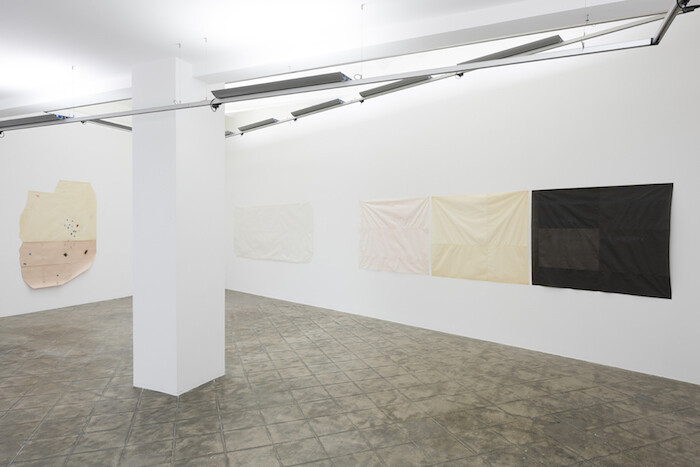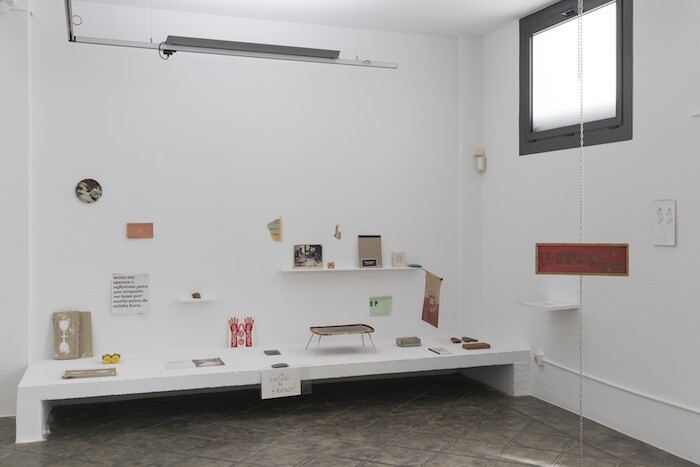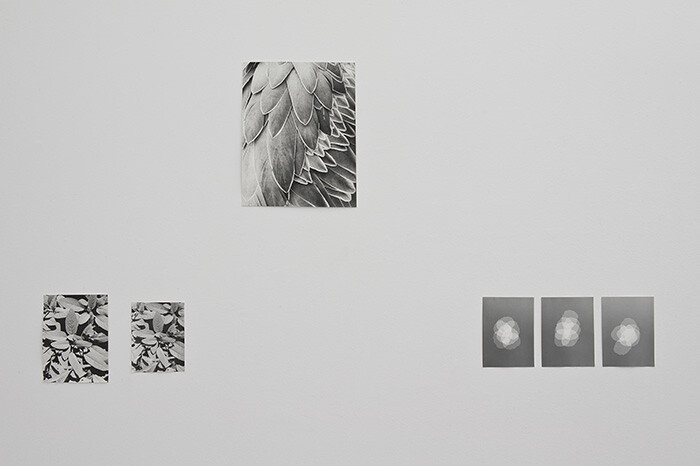Categories
Subjects
Authors
Artists
Venues
Locations
Calendar
Filter
Done
June 21, 2018 – Review
Guy Mees’s “Espace Perdu (Verloren Ruimte)”—an exhibition in two chapters
Helena Tatay

Guy Mees (1935–2003) was a leading figure of the Belgian avant-garde whose enigmatic work combined formal diversity with conceptual rigor. A consecutive pair of exhibitions at Barcelona’s ProjecteSD—the first from March to April, the second from May to June—shed light on his career, offering carefully curated series of works alongside archival materials that situate his practice in a wider art-historical background. Mees’s interest in serial structures, repetition, formal reduction, and industrial materials was in some ways typical of minimalism. But as these two exhibitions attest, his highly personal artistic language balanced formal rigor with fragile materials—stretched lace, pale neon, narrow strips of paper—to lend his work its characteristic delicacy.
Each exhibition loosely corresponds to a distinct period in Mees’s career, during which he produced a series of works under the collective title “Verloren Ruimte” [Lost Space]. The first group, made between 1960 and 1967, feature simple, geometric wood and aluminum sculptures overlaid with industrial lace. The second, which Mees began in the mid-1980s and completed in the mid-1990s, is looser and more vivid, comprising strips of colored paper pinned to the wall. Despite their formal differences, both series investigate the relationship between art objects and their exhibitionary environments. Displaying these works …
November 8, 2016 – Review
Ana Jotta’s “Abans que me n’oblidi (Before I forget)”
Mariana Cánepa Luna

While it has been widely exhibited in her native Portugal, Ana Jotta’s work hasn’t been presented in depth to the Barcelona public since the early 1990s. So this mini-survey of her production from 1980 to the present, framed as part of the Barcelona Gallery Weekend, is overdue. “Abans que me n’oblidi (Before I forget)” begins (or ends) at the intermediary patio space that one crosses before entering the main exhibition space at ProjecteSD. Part of a curved wall is covered with irregular patches of light gray and pale pink paint, as if emulating swatch tests for a redecoration. This playful gesture sets the tone for the exhibition inside, a somber and subtle palette of delicate intonations and provisional arrangements.
A dozen pieces are sparingly hung around the perimeter of the exhibition space. A large aquatint depicts a delicate wire fence (Untitled, 2002) and a portable projection screen is covered with a torrent of black-and-white strokes (Un Printemps 2008, 2008). This is the only work in the exhibition that appears to confirm Jotta’s own reductive description of herself as a painter, despite having tackled all manner of craft, from embroidery to writing. The sleek finish of the blue steel wall piece Cloud …
January 30, 2015 – Review
Jochen Lempert
Carles Guerra

Jochen Lempert’s work is often presented in large compositions of black-and-white photographs demanding close inspection. This time is no different. Ranging from medium-sized to small and tiny prints, this exhibition of his now classic repertoire of flora and fauna gives visitors the feeling of being at an amateur’s show, where the standards of high-end presentation have been disregarded. Since the early 1990s Lempert has been known as the photographer who was once a biologist, and with this knowledge the scale of the gallery space seems ideal; a room not big enough to belittle such subtle work, which could easily be confused with scientific materials of a lesser order. Although most of the photographs in the show are organized in diptychs, triptychs, and series including several pictures, the visitor is easily drawn into the detail. A few steps away from the wall it all looks like a harmonious world: natural objects from different orders merge into seamless forms.
But upon closer examination paradoxical connections manage to unsettle what at first glance seemed unproblematic. A shelf with eight photographs and one photogram (Botanical Box [2014]) emblematizes this type of composition. Among the diverse typologies of leaves depicted there sits a blurry reproduction of …